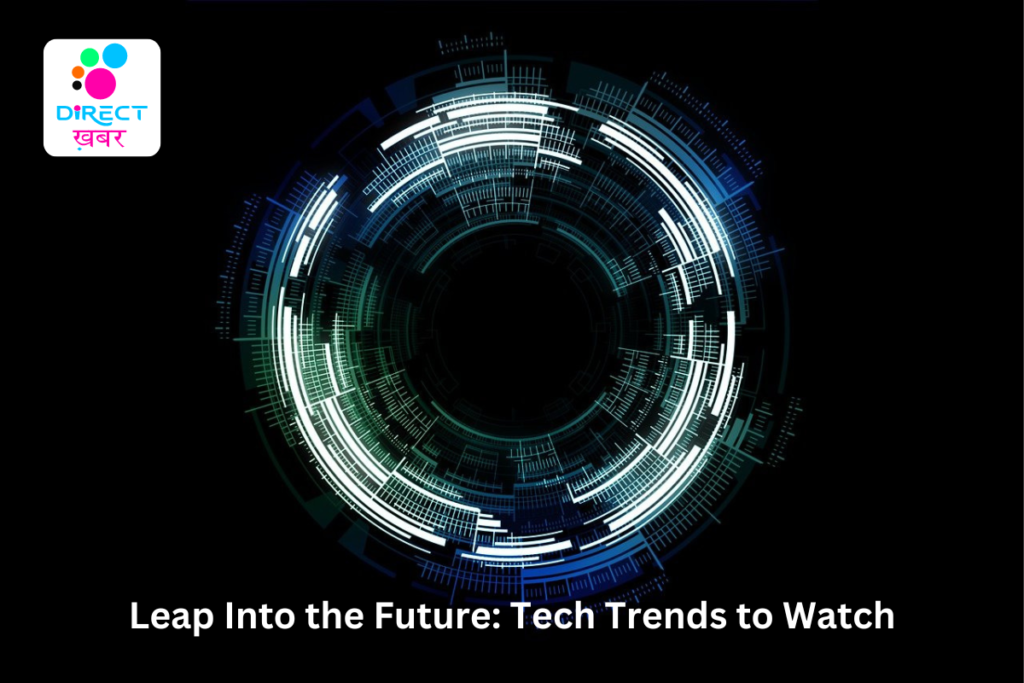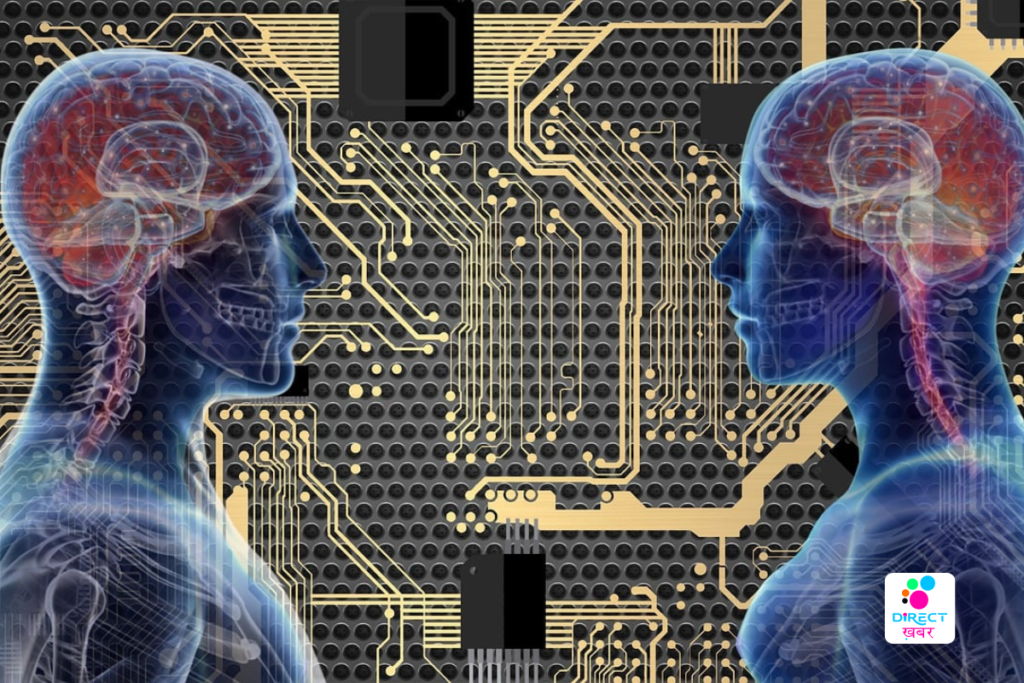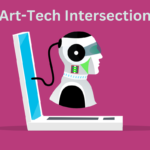Leap Into the Future: Tech Trends to Watch
In today’s rapidly evolving technological landscape, staying ahead of the curve is essential for individuals and businesses alike. From artificial intelligence (AI) and quantum computing to augmented reality (AR) and biotechnology, numerous emerging trends are poised to reshape our world in the coming years. In this comprehensive overview, we’ll delve into some of the most exciting future tech trends to watch, exploring their potential impact and implications across various sectors.

https://www.canva.com/design/DAF7wmzA59s
1. Artificial Intelligence (AI):
AI continues to revolutionize industries ranging from healthcare and finance to manufacturing and transportation. Advances in machine learning algorithms, natural language processing (NLP), and computer vision are driving unprecedented capabilities in automation, personalization, and decision-making. Ethical considerations surrounding AI, such as bias mitigation and data privacy, are also gaining prominence as AI applications become more pervasive.
2. Quantum Computing:
Quantum computing promises to unlock computational power beyond the capabilities of classical computers. Leveraging the principles of quantum mechanics, quantum computers have the potential to solve complex problems in fields like cryptography, materials science, and optimization. Major players in the tech industry are investing heavily in quantum computing research and development, signaling its importance as a future technology cornerstone.
3. Augmented Reality (AR) and Virtual Reality (VR):
AR and VR technologies are blurring the lines between the digital and physical worlds, offering immersive experiences across various domains. From gaming and entertainment to education and enterprise applications, AR and VR are transforming future how we interact with information and engage with our surroundings. As hardware becomes more affordable and software more sophisticated, AR and VR are poised for widespread adoption in consumer and business markets.

4. Biotechnology and Gene Editing:
Advancements in biotechnology, including CRISPR gene editing and synthetic biology, are revolutionizing healthcare, agriculture, and environmental sustainability. CRISPR technology, in particular, holds the potential to treat genetic diseases, engineer crops for improved resilience, and even combat climate change by engineering carbon-sequestering organisms. However, ethical and regulatory challenges surrounding gene editing raise important questions about its responsible use and societal implications in future.
5. Internet of Things (IoT) and Edge Computing:
The proliferation of connected devices and sensors is fueling the growth of the Internet of Things (IoT) ecosystem. By leveraging data generated from IoT devices, future businesses can optimize operations, enhance customer experiences, and drive innovation. Edge computing, which processes data closer to its source rather than relying on centralized cloud servers, is becoming increasingly important for latency-sensitive applications and real-time analytics.
6. Renewable Energy and Sustainability Tech:
As concerns about climate change intensify, renewable energy and sustainability technologies are gaining momentum. Solar, wind, and hydroelectric power, coupled with advancements in energy storage and smart grid technologies, are reshaping the global energy landscape. Sustainable innovations such as carbon capture and utilization, circular economy practices, and eco-friendly materials are also driving positive environmental impact across industries.
7. Cybersecurity and Privacy:
With the proliferation of data breaches, ransomware attacks, and privacy violations, cybersecurity has never been more critical. Organizations are investing in robust cybersecurity measures, including encryption, multi-factor authentication, and threat intelligence, to protect sensitive data and mitigate cyber threats. Privacy regulations such as the General Data Protection Regulation (GDPR) and the California Consumer Privacy Act (CCPA) are reshaping the data privacy landscape and holding companies accountable for responsible data handling practices.
Results:
As we leap into the future, the convergence of transformative technologies such as artificial intelligence, biotechnology, blockchain, and renewable energy promises to reshape our world in profound and unprecedented ways. From the way we work and communicate to how we address global challenges such as climate change, healthcare, and poverty, the possibilities are endless.
Artificial intelligence (AI) is revolutionizing industries by automating tasks, optimizing processes, and unlocking new insights from vast amounts of data. From personalized medicine and autonomous vehicles to predictive analytics and smart cities, AI is driving innovation across sectors, enhancing efficiency, and improving outcomes.
Biotechnology is unlocking the potential to cure diseases, enhance agriculture, and even engineer new forms of life. Advances in gene editing, regenerative medicine, and synthetic biology are paving the way for personalized healthcare, sustainable food production, and environmental restoration.
Blockchain technology is transforming the way we transact, authenticate, and secure information. By decentralizing trust and enabling transparent, tamper-proof records, blockchain has the potential to revolutionize finance, supply chains, voting systems, and beyond, fostering greater accountability and inclusivity.
Renewable energy technologies, such as solar, wind, and battery storage, are driving the transition to a more sustainable and resilient energy system. As concerns about climate change intensify, these clean energy solutions are becoming increasingly vital for reducing carbon emissions, mitigating environmental impact, and ensuring energy access for all.
However, navigating the complexities and uncertainties of this rapidly evolving technological landscape will require ongoing collaboration, innovation, and a commitment to ethical and responsible use. As we harness the power of these technologies, we must also address challenges such as data privacy, algorithmic bias, cybersecurity, and the ethical implications of AI and biotechnology.
By staying informed and embracing these tech trends, individuals and organizations can seize opportunities, address societal challenges, and drive positive change in the years to come. Whether through entrepreneurship, research, policy advocacy, or education, we all have a role to play in shaping the future of technology and ensuring that it serves the greater good. Together, let us embrace the possibilities of tomorrow and build a more equitable, sustainable, and inclusive world for generations to come.






